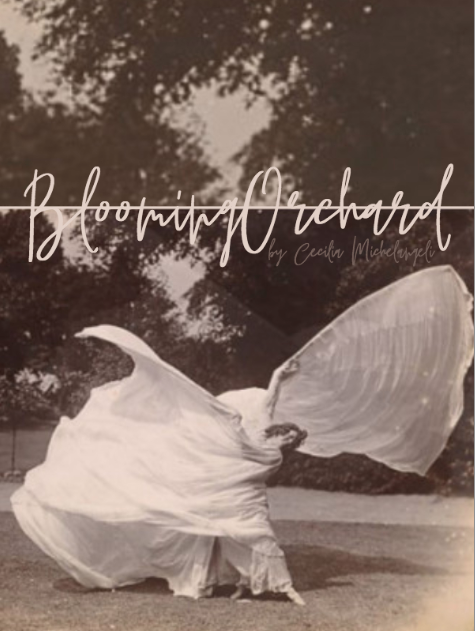THE STAGE 32 LOGLINES
Post your loglines. Get and give feedback.

BLOOMING ORCHARD
By Cecilia Michelangeli
As England enters WWI, a free-spirited dancer expatriates in the isolated cottage of a childless couple, becoming the muse of the pacifist photographer and helping her explore filmmaking, but being gradually captured by her motionless anhedonia.
SYNOPSIS:
Norfolk, England July 1914 - January 1915
Pacifists Mabel and Johnie are deeply in love, living and farming apples and pears with her family in their modest cottage. Their philosophies are made for each other, but their way of life differ, so they wrangle over bringing a child into a jarring world.
When Great Britain enters World War I, Mabel isolates herself, devoting more time to her often joyless photography.
Once Johnie refuses to enlist, unlike their brother-in-law, the family tensions deepen with their fears. The small town shames him with feathers, being gradually incited to violence, and now their stigmatized house seems even more secluded.
As the threat of German bombing looms over their future and terror makes its way, they shelter Edith, a middle-aged dancer who now finds herself far from her freedom, surrounded by their eerily forced serene appearance.
While still recovering from her desired miscarriage, Mabel, lured by her free-spirited attitude, starts to capture the stranded evacuee as her muse. This dynamic nymph, alone, can only surrender to Mabel's rediscovered artistic will.
And so, little by little, shot by shot, Edith gets lost in Mabel's teleidoscopic fantasies, merely becoming someone else's lively, twirling obsession.
As the women's bond deepens, Johnie, worried but accustomed to his wife's stagnation, tries to save Edith from being dragooned into her spiraling, oppressive anhedonia.
But as one feels compelled to dance, losing her innate passion, the other seeks pleasure by trying to catch her liveliness on print, exploring a new, moving art.
However, now that Mabel got into her head, not even a moving picture looks alive enough for Edith to survive in.
------------------------------------------------------------------------------------------------
------------------------------------------------------------------------------------------------
------------------------------------------------------------------------------------------------
Blooming Orchard is designed to be seen in sepia color, and only at specific moments in other seemingly hand-tinted, hazy hues.
This languid atmosphere mirrors Mabel's state of mind, as does lingering over the setting's painting-like stillness. The greenery and the blue waters of The Broads are nothing more than their monochromatic opposite, which is the wavelengths of radiation they absorb. Here, a simple motion is made significant and colors bring noticeable change and surprising joy.
By their nature, Mabel's cameras become the only thing that can capture her surroundings under a different light, revitalizing it. Hence, exploring cinema itself becomes her new coping mechanism.
As I and many filmmakers before and after her, Mabel is suddenly fascinated by the pure simplicity of this flowing, changing art, and decides to appreciate it in its elementary essence.
But where Mabel seems to flourish again, Edith can't live.
The dancer, a live performer and an artist of impulses, is made to move on command, under scrutiny, just to be caught, reflected and immortalized in an immutable object. Mabel, the viewer, influences the admired living art, unknowingly and unwillingly transforming it in her static self.But even if Mabel is aware that it's impossible to hold and own a beauty this alive, it doesn't mean she's able to stop. And thus, one woman's expression leads to incommunicability, and the most beautiful, vital art becomes a trapping nightmare.
As the women's relationship and psychological state changes, so does the form in which the story is narrated, becoming fragmented, edited and unnaturally tinted.
My intent is to express thought cinema, the art of movement, time and light, how the stasis of an unchanging life can destroy a person, and how the boredom of an unvaried contrast can make any minimal shade, light or color suddenly captivating. Which is why I love cinema.
Why do we pick living flowers to display them in a vase? Why would we catch a flickering firefly?

Rated this logline
Rated this logline
An intricate but ultimately confusing logline and synopsis. A few too many adjectives that often appear to contradict character behaviour, and information that doesn't lend very much to the actual story development. Do pears and apples feature prominently in the work? Do their books? Does the town, other than shaming Johnie? Not sure who the antagonist(s) is/are supposed to be.
Great first attempt, though. Just needs to be drilled down a bit more.
Rated this logline
Rated this logline
Rated this logline
Rated this logline
Rated this logline